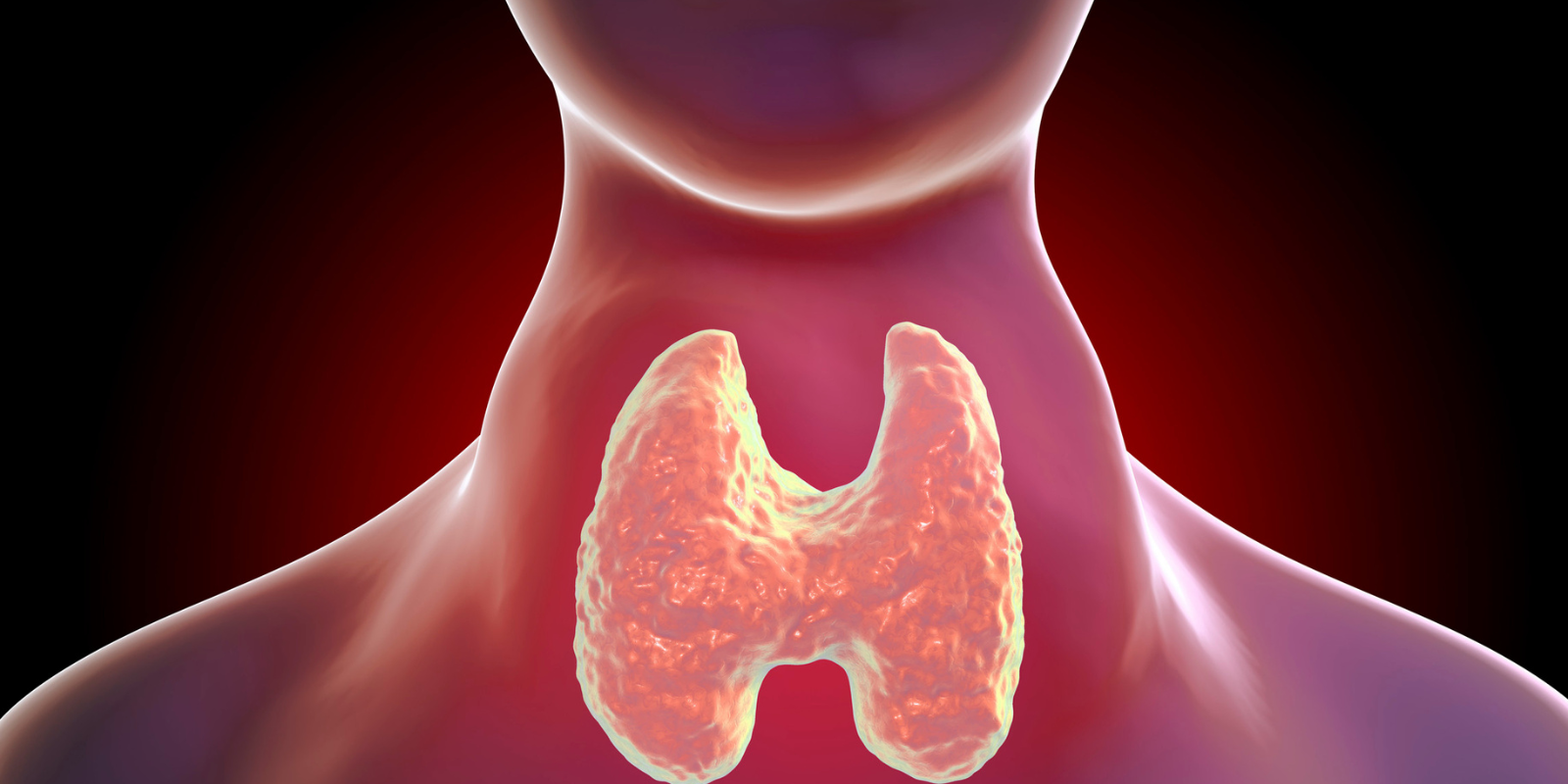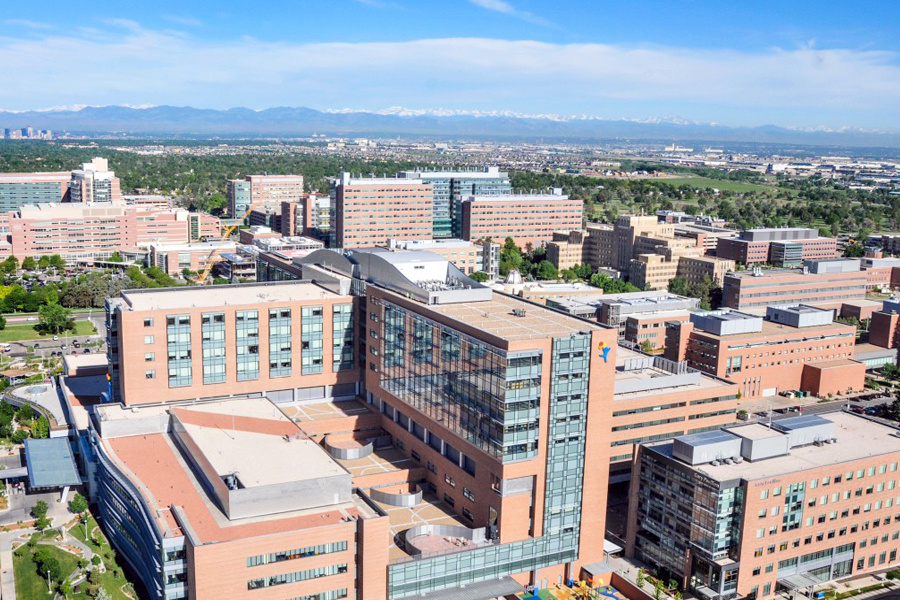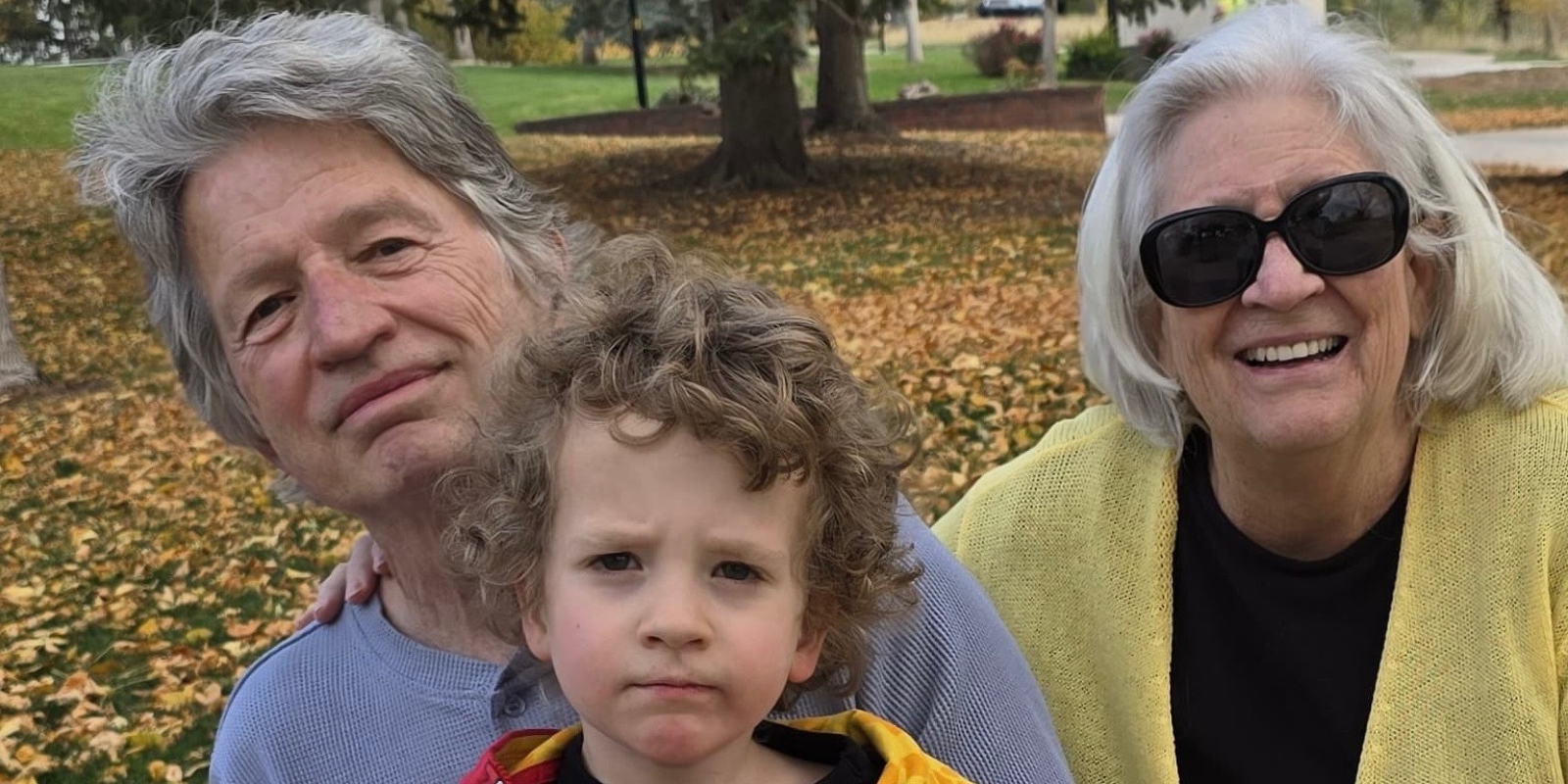What is the thyroid?
It's a gland that sits right below the voice box, and it makes a hormone that regulates lots of different things in your body. It affects your heart rate, your temperature regulation, your metabolism, your energy levels, your sleep-wake cycle. It's tightly regulated, and you need thyroid hormone to live and to live well. If you have your whole thyroid taken out, you have to take a pill to replace the function of the thyroid. The dose is based on the weight of the person. As long as they take their pill each day, most patients feel just like they did before they had any problem with their thyroid.
What are common thyroid conditions that require surgery?
The common indications for thyroid surgery are for nodules which on biopsy are either cancer or suspicious for cancer; benign nodules which are large and causing compression symptoms (e.g., trouble swallowing); or hyperthyroidism due to Graves’ disease or hyperfunctioning thyroid nodules.
What is hyperthyroidism?
Hyperthyroidism is a condition in which your thyroid is overproducing thyroid hormone, which can cause people to have rapid heart rate and heart palpitations, and feel sweaty, shaky, and anxious. Graves’ disease (an autoimmune disease which stimulates the thyroid) and hyperfunctioning thyroid nodules are causes of hyperthyroidism. Treatment options for hyperthyroidism include anti-thyroid medications, radioiodine and surgery to remove part or all of the thyroid. Surgery for Graves’ disease requires the whole thyroid to be removed, in which case the patient will have to take thyroid hormone to replace the normal function of the thyroid.
If the patient has a hyperfunctioning thyroid nodule, it might only require removal of half of thyroid, in which case the patient may not have to take thyroid hormone.
What about hypothyroidism?
Hypothyroidism is when the thyroid is not making enough thyroid hormone. That can happen if someone has had their thyroid removed and isn't on an appropriate dose of the thyroid hormone pill. If you haven't had your thyroid removed, the most common reason for hypothyroidism is what's called Hashimoto’s thyroiditis, which is an autoimmune disease where the thyroid is chronically inflamed due to it being recognized inappropriately by the immune system as something that shouldn't be there. Over time, the thyroid shrinks and loses function. It's a very common reason for people to have to be on thyroid hormone, even if they still have their thyroid. Hypothyroidism is not treated surgically.
What about thyroid cancer? How does that typically present?
Thyroid cancer is often asymptomatic. The patient or a clinician may notice a mass in the neck on routine physical exam, or a thyroid nodule may be incidentally found on an ultrasound or CT scan done for another purpose. Thyroid cancer doesn't affect the function of the thyroid, and it doesn't usually cause any problems with swallowing. An ultrasound is the best test to evaluate thyroid nodules, and the size and appearance dictates whether a needle biopsy is warranted to determine if the nodule is cancer or suspicious for cancer.
Is removal of the thyroid (thyroidectomy) typically the treatment for thyroid cancer?
Surgery is by far the main treatment for thyroid cancer. There are some people with very small, incidentally found thyroid cancers where it might be appropriate just to monitor it and only treat it if it progresses or grows. But the majority of people who are diagnosed with thyroid cancer undergo surgery to remove either half or all of their thyroid. For a lot of patients, that's all the treatment they need, but some patients with papillary or follicular thyroid cancer need further treatment after surgery with radioactive iodine. It is a medicine they take by mouth, and if the cancer has spread to other locations in the body, the radioactive iodine can search it out and deliver intracellular radiation to kill the cancer cells without harming a lot of other cells in the body.
How is the surgery typically performed? Is it robotic or minimally invasive?
Most commonly, it is done under general anesthesia through an incision across the lower neck that measures 2-3 inches. There are alternative approaches that utilize incisions in the armpit or oral cavity using robotic and/or endoscopic assistance, but these techniques are much less commonly performed and should not be considered minimally invasive.
Does the surgery have any risks?
The thyroid sits right on the recurrent laryngeal nerves, which control the vocal cords, so one of the risks of thyroid surgery is injury to those nerves. With an experienced thyroid surgeon, the risk of injuring those nerves is very low — 1% or less, but if that were to happen, it can cause hoarseness of the voice. If you have your whole thyroid taken out, then there's a risk of damage to the parathyroid glands, which are little glands that live behind the thyroid and control the calcium in your body. Low calcium can cause numbness and tingling or muscle cramps, but if this occurs, it is usually just temporary from the parathyroid glands being bruised and stunned. In most cases the parathyroids recover and calcium returns to normal.
What's the recovery typically like?
Patients may be fatigued for a while from the general anesthesia. Some patients may be able to go home from the recovery room after a period of observation; otherwise, patients spend one night in the hospital and then just need to rest and take it easy for a week or two. As with any surgery, there may be swelling, and that can make it feel like there's a lump in their throat and cause a little difficulty swallowing until that swelling goes away. Overall, patients tolerate thyroid surgery well and recover quickly.






